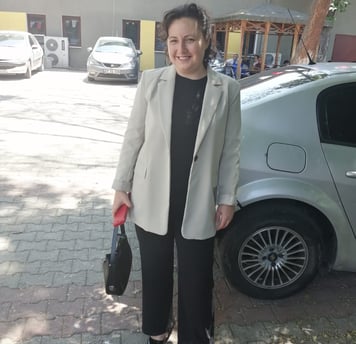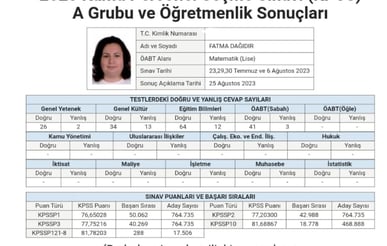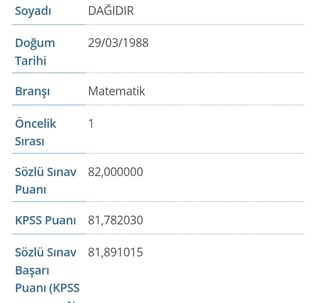Fatma’s Story: The Silent Scream of Teachers Waiting to Be Appointed


Fatma Dağıdır is a 37-year-old woman living with her family in Istanbul. She graduated from Istanbul University with a degree in Mathematics. Becoming a teacher was her dream. However, she faced disappointment four times in the exams she took to realize this dream. When she first took the KPSS public personnel selection exam in 2015, she missed placement by only 0.5 points. As she explains with tears in her eyes, "That half-point difference nullified years of effort and work." As a child, she was not good at math. In second grade, when her teacher called her mother and said, “Fatma can’t do math,” she was deeply hurt. But this heartbreak ignited her determination. In high school, she realized that the problem wasn’t her but how math was taught poorly, so she started studying with great determination. This decision changed her life.
She took the KPSS exam four times but could not be appointed. In 2023, she ranked 288th in the mathematics branch and thought she would be appointed in the interviews held in 2024. However, when the results were announced, she saw that her ranking had dropped to 416th. There were only 317 positions available, and Fatma was left outside the quota. She says, "While candidates in Istanbul don't even get 1 additional point, candidates in eastern provinces receive 8 to 10 extra points. Because of this inequality, I was pushed down." This systemic injustice shattered her dreams. Even though she applied for placement in eastern provinces by lottery, she could not be appointed.
Fatma’s Story: The Silent Scream of Teachers Waiting to Be Appointed


People told her to "give up and do another job." But she didn’t give up. "I invested years of effort; I cannot easily quit." She suffered great psychological damage. When KPSS results were announced, she said, "I thought my life was over." She fell into a deep depression and was haunted by dark thoughts. “Many times, I walked along the seashore hoping the fresh air would help me breathe again, but instead, I found myself staring at the water, wondering if it would be easier to let go. I thought of jumping in... I was that close. I can't bear this life anymore.” The weight of unfulfilled dreams, the endless waiting, and the crushing uncertainty became unbearable. She struggled with anxiety, neck and back pain, muscle spasms, and other health problems. The stress and family pressure deeply affected her life. "Math is a job of patience, not intelligence. But this process has turned into a game of chance. My score is high, but everything after the interview is uncertain," she says.
Unable to get appointed, she had to work in the private sector to make ends meet. At one point, she started an e-commerce business by making and selling jewelry online from home. She says, "It would have been impossible to survive if I didn’t live with my family." She also had to postpone her dream of marriage. "I have been waiting for appointment for two years, and I was always waiting for that moment to get married. I even prepared my dowry, but I still haven’t been appointed." She faced intense pressure from her family and social circle.


Her advice to students is clear: "Not everyone has to do math. The education system shouldn’t force it. If I were a teacher, I would guide students according to their talents." Her criticism of the system is harsh: "Since doctors don’t work as paid substitutes, teachers shouldn’t either. Substitute teachers earn minimum wage. This is very unfair. There’s too much nepotism and quota injustice. The system needs to change." Fatma’s story is a vivid example of the difficulties, disappointments, and struggles faced by unappointed teachers. She is a woman who has postponed her own dreams for years and survives with her family’s support, drawing attention to the injustices in the education system and continues to raise her voice.
Fatma is not just an unemployed teacher; she is the collective voice of dozens, even hundreds of teachers waiting to be appointed. She is a reflection of all hardworking teachers struggling with the injustices and unfairness they experience. The silent scream of teachers working in private courses and private teaching institutions that you pass by every day is a representative of their invisible struggle. Her story is not only her own; it is an echo assigned in the hearts of all teacher candidates whose hopes have been shattered and whose dreams have been left unfinished, a cry full of resistance. In Fatma's voice, that large mass invisible to the eye speaks; the story of those who shoulder the burden of the education system but cannot get their reward, whose faith in the future is about to fade...